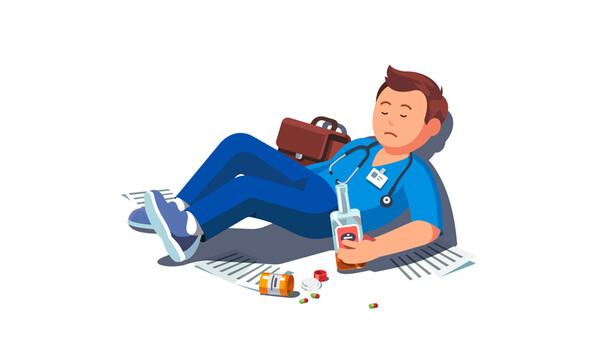Korea is currently facing a significant ethical and legal dilemma in its medical sector due to increasing instances of doctors performing surgeries while under the influence of alcohol.

This issue gained national attention following an incident in January, where a young surgeon in Seoul conducted facial surgery while intoxicated. The patient, suspecting the doctor's condition, alerted the authorities, leading to the discovery of the surgeon's inebriation through a breathalyzer test.
However, under existing Korean laws, performing medical procedures while drunk is not a criminal offense, allowing the surgeon to avoid legal repercussions.
The only penalty for such misconduct is a potential medical license suspension for up to a month.
Still, this incident was not singular. In the past five years, nine doctors have faced disciplinary action for similar offenses. Notably, these include a 2018 case involving an infant overdosed with insulin by an intoxicated doctor and a tragic 2020 incident where a newborn died following a cesarean section performed by an inebriated gynecologist.
In response to growing public outrage and concern for patient safety, the Ministry of Health and Welfare is contemplating revisions to the Medical Service Act to criminalize medical practice under the influence of alcohol.
While some in the medical community support these changes, others argue that they could create new challenges, particularly in emergency scenarios.
The Korean Medical Association (KMA) objected, arguing that legislating and punishing all aspects of medical professionals' ethical responsibilities is an excessive measure.
“According to the current Medical Law, actions that severely damage the dignity of medical professionals are already subject to sanctions, including suspension of medical licenses,” a KMA official said. “This clause broadly covers numerous ethical obligations, including treatment under the influence, and provides a mechanism for comprehensive sanctions.”
Also, it is necessary to consider special situations where a doctor, not on duty, has to urgently respond due to an emergency situation or shortage of medical staff, he added.
Another doctor also agreed.
“A lot of hospitals have departments, such as emergency and pediatric, that have only one or two doctors available,” a doctor working at a tertiary general hospital in the Greater Seoul area said, asking to remain anonymous due to the sensitivity of the issue. “However, a doctor can't be on call 24 hours a day and what if one of them was having a drink nearby after getting off work and then gets an emergency call for surgery from the ER?"
Is it right for the doctor in this case to refuse treatment and send the patient away?, she added.
The doctor further noted that while some might say the solution is to increase the number of doctors, this is not a solution.
“Even if the number of doctors increases, we might end up with more cosmetic and plastic surgeons who only need to schedule appointments during the day, and not enough who can respond to emergency calls at night or overnight,” she said. “The issue of doctors performing surgeries while intoxicated is not as simple as it seems."
However, there are also some healthcare professionals who argue for legal sanctions and believe that medical practices performed under the influence of alcohol disregard patient safety.
"Patient safety is the most crucial issue,” a doctor, who works at a general hospital in Gyeonggi Province, said. “No one would agree that it's acceptable to be treated by a doctor who has been drinking.”
The doctor further stressed that as it is impossible to set a standard for alcohol consumption, medical practices under the influence should be entirely prohibited.
Another junior doctor who works in a general hospital in Busan shared similar concerns.
"I have often seen doctors who come to surgery still drunk from drinking the day before,” he said. “I have even seen a doctor who said that he felt like vomiting due to a hangover during the operation.”
Although the drinking issue might vary from hospital to hospital, from a patient's perspective, it's akin to being in a car driven by a drunk driver, he added.

